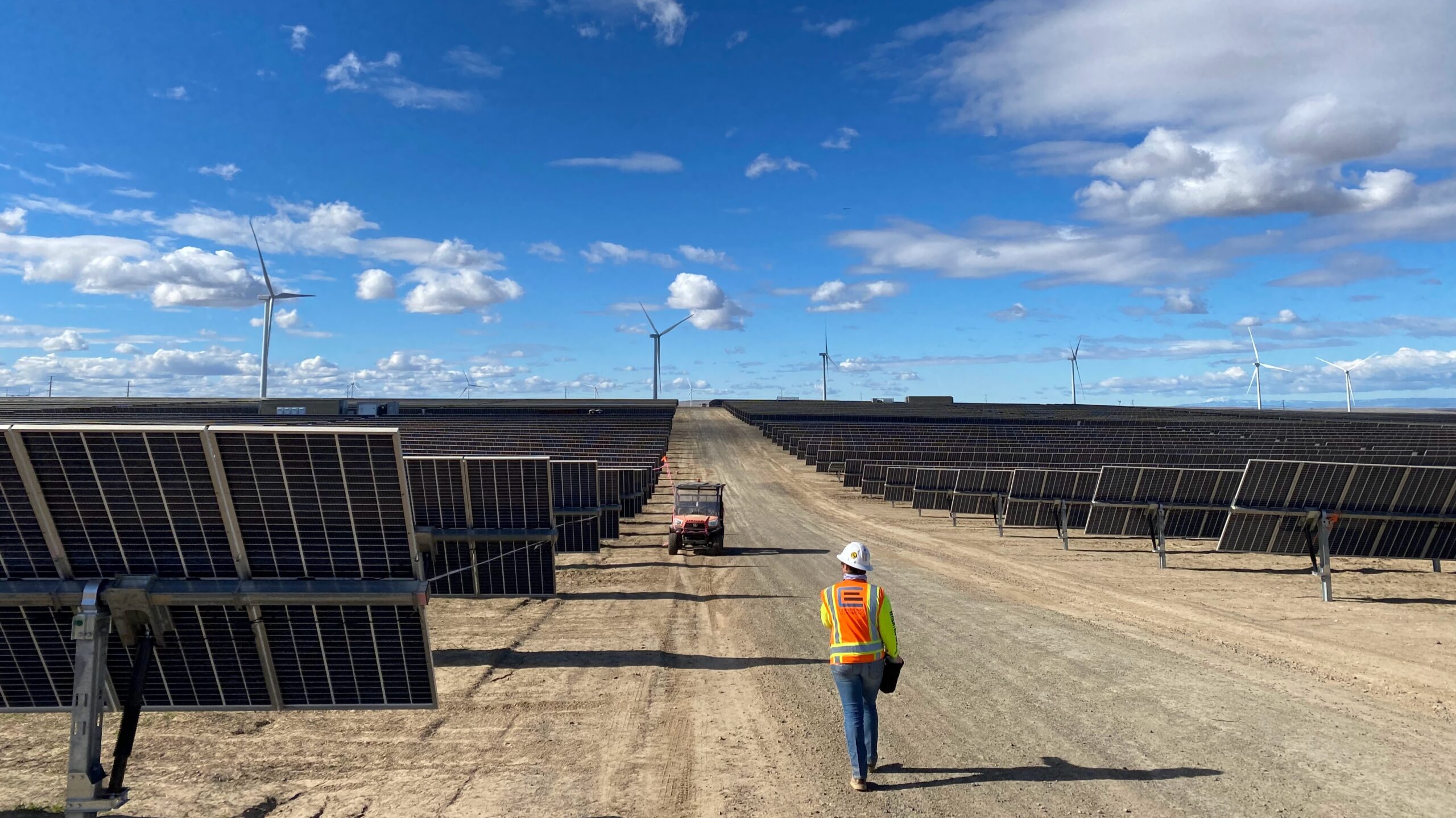IBEW members are joining Republican leaders to warn that cuts to renewable energy investments will set back the country’s response to the growing demand for electricity.
Congress is debating whether to end tax credits for low-carbon energy even though the credits have put thousands of IBEW members to work.
IBEW Third District business development international representative Ed Hill, Jr. said repealing tax incentives on energy-related infrastructure projects would raise prices and cut IBEW jobs. A third-generation IBEW member, Hill said he witnessed the decline of manufacturing in the past 20 years, but new investments in Pennsylvania are changing that.
In Pennsylvania, millions of dollars in wind, solar and battery storage projects may be cancelled if the Inflation Reduction Act tax credits are clawed back, Hill said. These tax credits incentivize the use of union labor.
“Without incentives, the funding disappears. Then project costs increase. If they even build it,” Hill said, “the costs will be higher.”
Hill also said a New York solar development company had been ready to break ground on 13 sites using union labor. “They decided to work with the IBEW because of the IRA,” he said. Now it’s unclear if the projects will move forward.
Over 20 Republican members of Congress wrote a letter to the House in support of the tax credits. They cited the need for energy expansion for national security, good-paying jobs, and energy independence.
“The U.S. produces energy from a myriad of sources that are cleaner and more efficient than anywhere else,” they wrote. “An all-of-the-above energy approach will help support our position as a global energy leader.”
Climate Power said since the IRA was signed into law in 2022, Pennsylvania experienced $1.3 billion in investment and the creation of 4,600 new jobs. In Columbus, Ohio, Local 683 business manager Patrick Hook also witnessed IBEW opportunities due to the IRA.
“These clean energy projects might give a new member an opportunity where they’ll work for decades,” Hook said. “Any rollback of the IRA is bad for workers.”
In the Ohio Capital Journal, Hook and Cleveland Local 38 business representative Michael Shingary said if renewable energy investments are repealed, energy bills could rise by 10%.
By 2040, U.S. demand for electricity is predicted to increase by 50% because of data centers, manufacturing, and electrified transportation. Wind, solar, battery storage, and nuclear are key to answering this demand; they are faster and cheaper than other sources. Fossil fuels alone, on the other hand, will result in higher prices. “If you take renewables off the table, NextEra CEO John Ketchem told the New York Times, “prices will go to the moon.”
Caption: Photo by Kennewick, Wash., Local 112 member Kendel Castner.

